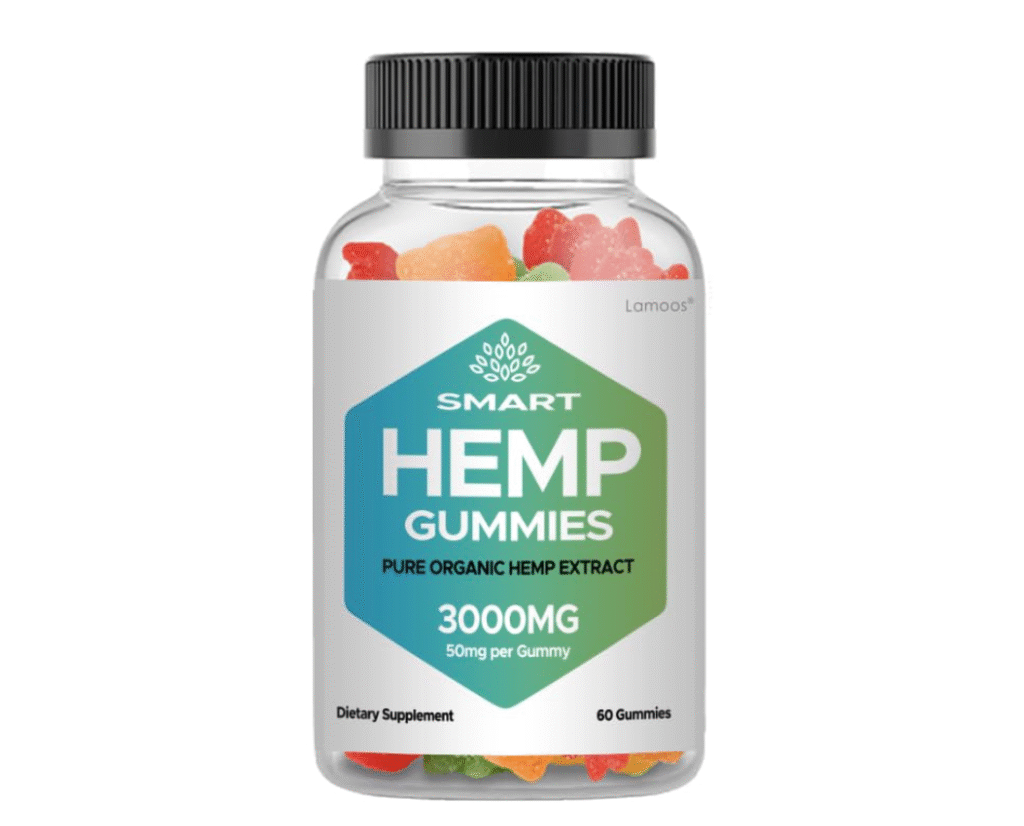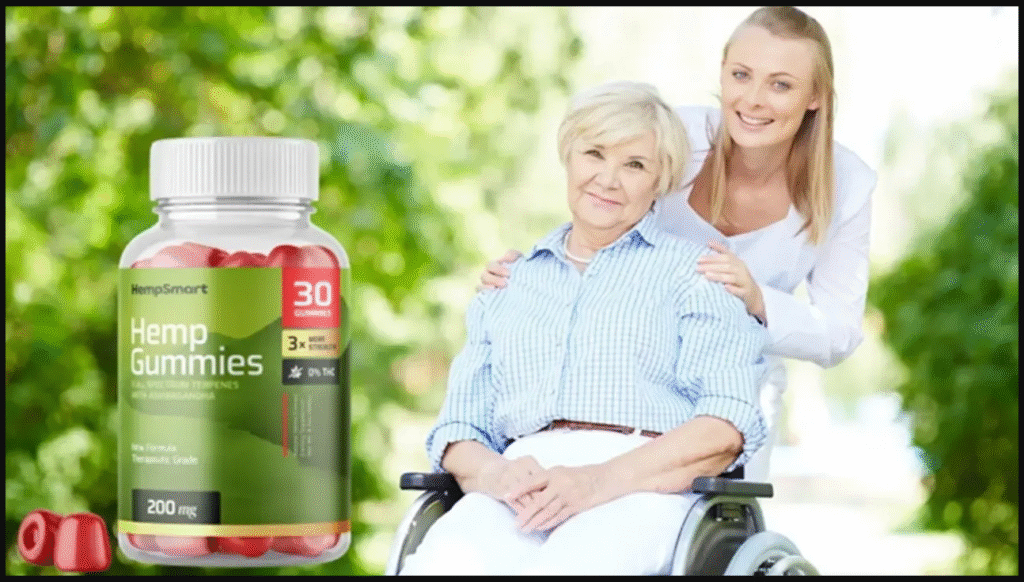Best CBD gummies Australia Reviews:
The drastic change in lifestyle with no proper care and diet causes several health issues in an individual. Aging is a massive factor that causes a person to get health ailments affecting both physical and psychological aspects of a person.
Our habits affect the acceleration of the aging process. Stress becomes the main concern with physical issues like chronic pain, arthritis, back and joint aches, and so on. Smart Hemp Best CBD gummies Australia, the best option to treat all health issues with great action. Our experts have researched and tested to proffer the best CBD option with no psychoactive blends in its composition.
Smart Hemp Best CBD gummies Australia for sleep represent a natural and holistic approach to well-being, incorporating the therapeutic properties of hemp plants and a blend of natural ingredients, including Ashwagandha and various plant extracts. The potential benefits of these gummies extend to both physical and mental well-being, providing relief from various conditions such as stress, anxiety, and depression. Moreover, the formulation suggests potential benefits for blood pressure regulation, improved focus, and overall health.
Main Ingredients of Smart Hemp CBD gummies Australia –
1. Hemp Extracts
Derived organically from hemp leaves, hemp extracts contain therapeutic elements contributing to natural healing. These elements may alleviate pain, reduce stress, anxiety, and depression, and promote relaxation, leading to improved sleep cycles.
2. CBD Oil
Extracted from the hemp plant, CBD oil nourishes health and addresses the root causes of inflammatory conditions. It triggers anti-inflammatory responses, reducing pain, and muscle aches, and promoting a lifestyle free from depression, anxiety, and stress.
3. Rosemary Oil
Apart from adding a pleasant taste and aroma to the gummies, rosemary oil provides natural relief from pain, aches, and inflammation. It aids in managing muscle and joint pain, potentially preventing bone loss due to aging.
4. Clove Oil
Clove oil, a crucial element, triggers anti-inflammatory responses, controlling and managing pain and aches across the body and joints. It enhances joint flexibility and mobility, reducing muscle pain.
5. Feverfew
Included for its active elements, feverfew helps control pain and aches in the body. It aids in alleviating migraine attacks, promoting the natural healing of chronic pain, and preventing arthritis pain in the joints.

Functions of Smart Hemp CBD gummies Australia –
Best CBD gummies Australia are formulated with organic substances that promote natural healing and healthy well-being. Enriched with therapeutic properties, these gummies aim to nourish the endocannabinoid system (ECS), regulating major bodily functions such as eating habits, mental well-being, sleep, and pain management. The overall result is improved control over essential bodily functions, fostering a healthier lifestyle.
The gummies contribute to holistic healing, addressing different types of pain across the body. Their composition stimulates anti-inflammatory responses, combating chronic pain and inflammation. Additionally, Smart Hemp CBD gummies Australia enhance joint flexibility and mobility, prevent migraine attacks and headaches, and promote sound sleep cycles at night. The formula supports faster muscle recovery after injuries, ensuring users remain healthy, active, and energetic.
Prime Benefits of Using Smart Hemp Best CBD gummies Australia –
Holistic Healing: CBD gummies Australia provide a natural way to heal from chronic conditions, promoting overall well-being.
- Adverse Effects-Free: The formula promotes healing without causing adverse effects, ensuring a safe and efficient experience.
- Pain-Free Lifestyle: Users may lead a healthy lifestyle without pain and aches, with restored bone strength to prevent age-related bone loss.
- Stronger Immunity: The gummies make immunity stronger, enabling the body to combat chronic diseases more effectively.
- Combatting Inflammatory Conditions: Smart Hemp CBD gummies Australia reduce inflammatory conditions and prevent pain, addressing muscle strain and pain.
- Enhanced Joint Flexibility: Users may experience maximized joint flexibility and mobility, contributing to an active lifestyle.
- Prevention of Migraine Attacks: The gummies help prevent migraine attacks and headaches, promoting overall well-being.
- Sound Sleep: Users enjoy sound sleep cycles at night, combating insomnia symptoms and promoting relaxation.
Dosage Instructions –
As per the official website and label instructions, users are recommended to take one capsule of Smart Hemp CBD gummies Australia daily in the morning, preferably with water. Consistent use over 2-3 months is suggested for optimal results. Before starting the regimen, users should consult with their healthcare professionals to determine precise dosages based on individual well-being and age. Excessive consumption should be avoided to prevent potential overdosing effects.
Where to Buy the Smart Hemp Best CBD gummies in Australia –
CBD gummies Australia with Ashwagandha is exclusively available for purchase online through the official website. Consumers in Australia, Canada, Israel, South Africa, and New Zealand are advised to verify their shipping addresses before ordering from the official platform.

Best CBD gummies Australia Reviews:
Emma R.
I began taking Smart Hemp CBD Gummies a month ago, and frankly, I’m blown away. I’ve fought anxiety and bad sleep for years, and nothing helped—until now. Within 30 minutes of taking a gummy, my thoughts are clearer and my mind more at ease. I’ve also been going to sleep quickly and staying asleep the entire night, which is a huge plus. The flavor’s good (not too sugary), and no gross aftertaste. I also like the fact that it’s manufactured in Australia and contains natural hemp extract. No side effect whatsoever, no high—just a soothing, calming effect. I appreciate how much these gummies are THC-free and vegan, too. It’s a good feeling at long last to run across a CBD product that does what it says it can. Highly endorse Smart Hemp CBD Gummies for anybody who’s fighting stress, struggles with/ sleep, or just wants a more balanced day.
John T.
Smart Hemp CBD Gummies are now a daily part of my routine. With joint pain and mental fogginess, these gummies are a lifesaver. I take one in the morning and one in the evening and experience reduced stiffness and improved mental clarity. What I appreciate the most is the subtle nature of the effect—no lethargy or heaviness at all, but a clear and centered energy that persists for the rest of the day. The fact that they are high-quality and grown in Australia is a plus. All the CBD products that I’ve tried in the past didn’t quite work this consistently. They also happen to taste deliciously good and are therefore easy to take. What they give me is a better control over body and mind and this helped me a great deal in terms of productivity and mood. Whether you require pain easing or simply a maintenance of centeredness and balance in the body and mind, Smart Hemp CBD Gummies are a product you should try.
Frequently Asked Questions (FAQs) –
- What is–Smart Hemp cbd-gummies-australia?
Smart Hemp CBD gummies Australia Reviews Website is a platform for users to share their experiences and insights regarding the product. The information includes reviews, popularity, safety assessments, and a health score report.
- Is the Smart Hemp CBD Gummies Australia website popular?
The npm package ‘Best CBD Gummies Australia Reviews Website’ receives limited weekly downloads, indicating moderate popularity. A full health analysis report is available on Snyk Advisor.
- Is Smart Hemp-cbd-gummies-australia-safe to use?
Smart Hemp CBD-gummies-australia-website was scanned for known vulnerabilities and missing licenses, and no issues were found. It is deemed safe for use, as indicated by a comprehensive health analysis.
Final Thoughts on Smart Hemp Best CBD gummies Australia –
In conclusion, CBD gummies Australia emerged as a promising option for individuals seeking safe and efficient relief from various ailments. These gummies provide a practical and discreet method to incorporate CBD into daily wellness routines, offering high-quality, naturally produced CBD with delectable flavors.
CBD gummies Australia may assist without the negative side effects associated with conventional pharmaceuticals, addressing conditions such as chronic pain, anxiety, and sleep problems. However, consulting with healthcare professionals before starting any new regimen is advisable.
To sum up, Smart Hemp CBD Gummies Australia are the Best CBD gummies that should be considered by anyone looking for a secure and organic alternative to traditional medications. They offer a holistic approach to well-being, aiming to contribute to overall health and an improved quality of life.
Disclaimer & Copyright
The content on AmericanPainSociety.org is provided for general informational purposes only and should not replace professional medical advice, diagnosis, or treatment. We make no guarantees of accuracy, completeness, or timeliness. Users rely on the information at their own risk. Always consult qualified professionals for healthcare decisions.
© 2025 American Pain Society. All rights reserved. No part of this website may be reproduced, distributed, or transmitted in any form or by any means without prior written permission.

